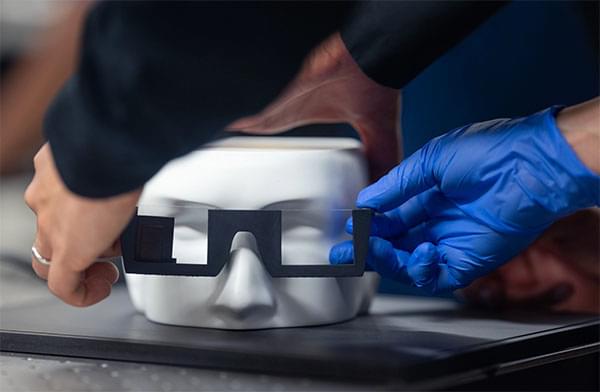Lenses are used to bend and focus light. Normal lenses rely on their curved shape to achieve this effect, but physicists from the University of Amsterdam and Stanford University have made a flat lens of only three atoms thick which relies on quantum effects. This type of lens could be used in future augmented reality glasses.
The findings have been published in Nano Letters (“Temperature-Dependent Excitonic Light Manipulation with Atomically Thin Optical Elements”).
The thinnest lens on Earth, made of concentric rings of tungsten disulphide (WS2), uses excitons to efficiently focus light. The lens is as thick as a single layer of WS2, just three atoms thick. The bottom left shows an exciton: an excited electron bound to the positively charged ‘hole’ in the atomic lattice. (Image: Ludovica Guarneri and Thomas Bauer)








